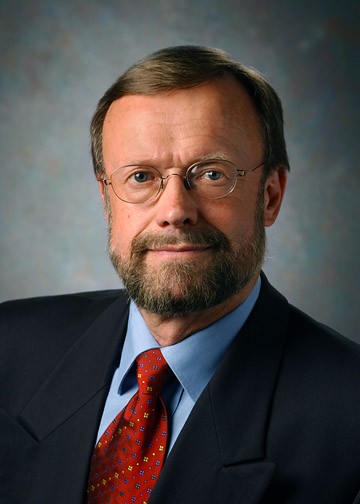Wolfgang Gentzsch
Sustainable HPC Infrastructures: HPC Centers, Grids, and Clouds -- The DEISA Experience
Grids provide the "plumbing" to enable seamless access to distributed resources, clouds denote user-friendly services on a pay-per-use basis. Grids stand out because of their flexible, dynamic, feature-rich resources and thus are complex by their very nature. Cloud applications will likely follow similar strategies as grid-enabling ones. Just as challenging, though, are the cultural, mental, legal, and political aspects of clouds. Building trust and reputation among the users and the providers will help in some simple scenarios. But it is still a challenge to imagine users easily entrusting their corporate assets and sensitive data to cloud service providers.
Another question which we will try to answer in our presentation is how suitable the Cloud services model will be for the capability computing demands of the HPC community, in research and industry.
One promising example of an HPC grid on its way (or similar to) a cloud service might be the Distributed European Infrastructure for Supercomputing Applications, or DEISA. The DEISA Extreme Computing Initiative DECI is successfully offering millions of supercomputing hours to the European e-Science communities and their partners, at finger tip, and helping scientists gain new insights. Why is DECI so successful? In my opinion: because it has a very targeted focus on specific, long-running, supercomputing applications; many of the applications just run on one single system; it has user-friendly access to resources through DESHL and UNICORE; its coordinating function gives consortium partners full autonomy; and because there is an application task force (ATASKF) that helps users port their applications to the supercomputing infrastructure. If all this were here to stay, DEISA will have a good chance to exist for a long time and thus become a sustainable e-infrastructure for the computational scientist. And then, we might end up with a DEISA Cloud which will become an external HPC node within your grid application workflow.
Thus, the aim of the talk will be to elaborate on the main differences between HPC centers, grids and clouds, analyze sustainability with the aid of the DEISA experience, and provide a Cloud check list for HPC applications.
Speaker
 | Wolfgang Gentzsch The DEISA Project Member of the Board of Directors of the Open Grid Forum |
Wolfgang Gentzsch is currently Dissemination Advisor for the DEISA Distributed European Initiative for Supercomputing Applications, a member of the Board of Directors of the Open Grid Forum standards organization, and a consultant to HPC, Grid, and Cloud stakeholders. Before, he was an adjunct professor of computer science at Duke University in Durham, and visiting scientist at RENCI, Chapel Hill, North Carolina; Chairman of the German D-Grid Initiative; Vice Chair of the e-Infrastructure Reflection Group e-IRG; Area Director of Major Grid Projects of the Open Grid Forum Steering Group; member of the US President's Council of Advisors for Science and Technology (PCAST-NIT); Managing Director of MCNC Grid and Data Center Services in North Carolina; Sun Microsystem's Senior Director of Grid Computing in Menlo Park, CA; Founder, CEO and CTO of software companies Genias and Gridware (the origin of Grid Engine), and professor of mathematics and computer science at the University of Applied Sciences in Regensburg, Germany. Wolfgang Gentzsch studied mathematics and physics at the Technical Universities in Aachen and Darmstadt, Germany.
